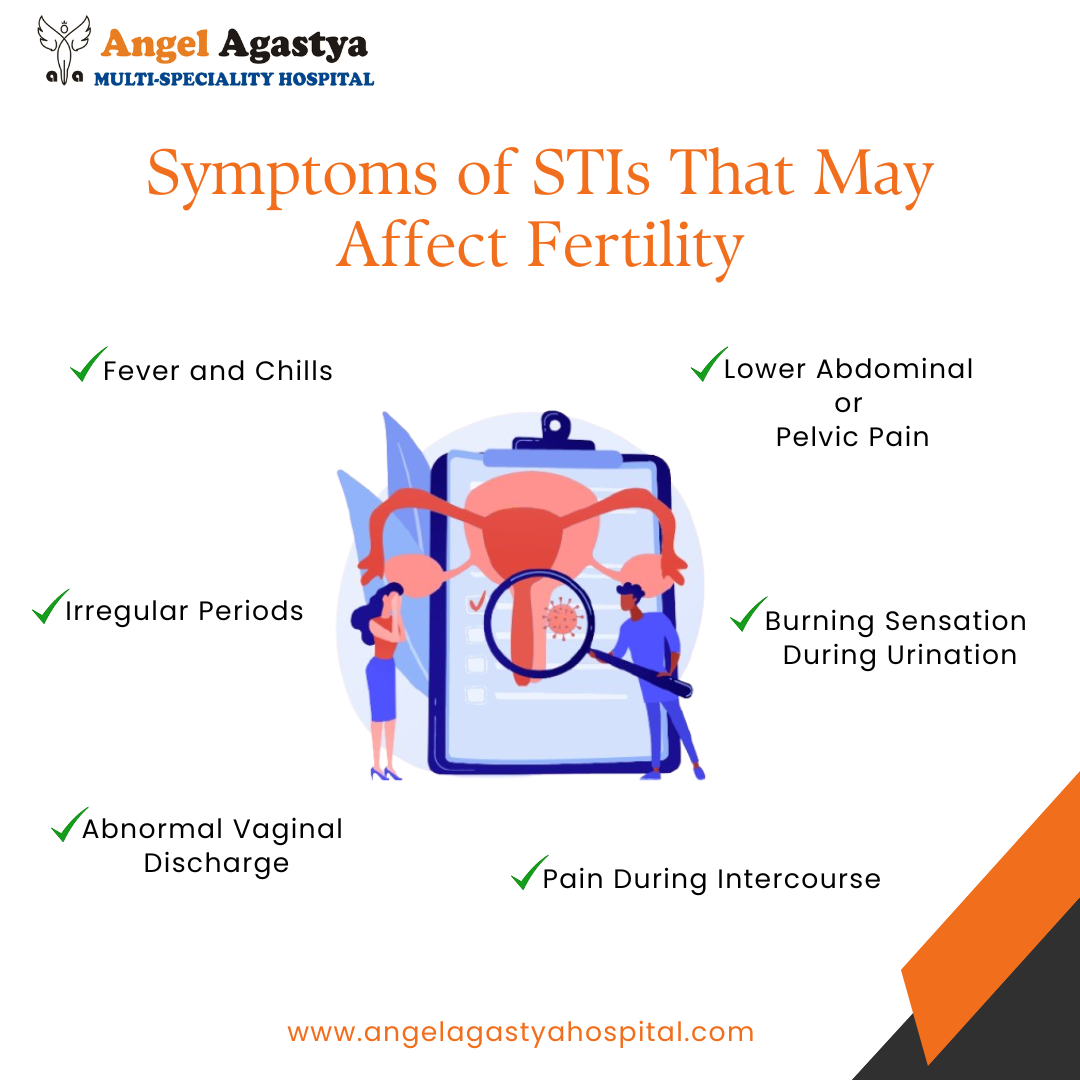Sexually Transmitted Infections (STIs) are a growing health concern across the world, and their impact goes beyond temporary discomfort or embarrassment. One of the most serious and often overlooked consequences of untreated STIs is their ability to harm a woman's fertility. According to the Best Gynac in Dwarka, timely detection, prevention, and treatment of STIs are crucial for women who are planning a pregnancy now or in the future.
In this comprehensive guide, we explore how STIs affect fertility in women, signs to watch out for, available treatments, and what you can do to protect your reproductive health.
What Are STIs?
STIs (Sexually Transmitted Infections) are infections that are primarily spread through sexual contact, including vaginal, anal, or oral sex. Common STIs include:
- Chlamydia
- Gonorrhea
- Syphilis
- Trichomoniasis
- Human Papillomavirus (HPV)
- Herpes Simplex Virus (HSV)
- HIV/AIDS
While many STIs can be treated with antibiotics or managed with antiviral medications, some can lead to long-term health issues—especially when left undiagnosed or untreated.
How STIs Affect Female Fertility: Insights from the Best Gynac in Dwarka
STIs can severely affect a woman’s reproductive system. Here are some of the key ways these infections impact fertility:
1. Pelvic Inflammatory Disease (PID)
One of the most common causes of infertility related to STIs is Pelvic Inflammatory Disease. PID is an infection of the female reproductive organs, often caused by untreated chlamydia or gonorrhea.
- It damages the fallopian tubes, uterus, and ovaries, leading to scarring.
- This scarring can block the passage of eggs, preventing conception.
- PID can also increase the risk of ectopic pregnancy, a life-threatening condition.
2. Tubal Blockage
STIs like chlamydia and gonorrhea can silently damage the fallopian tubes, sometimes without any symptoms. This can:
- Block the fallopian tubes entirely.
- Prevent the egg and sperm from meeting.
- Lead to tubal factor infertility, which is responsible for nearly 25-35% of infertility cases.
3. Cervical Damage
Some STIs cause chronic inflammation or changes in cervical mucus, making it harder for sperm to enter the uterus. For example:
- HPV can lead to cervical dysplasia or cancer.
- Chronic inflammation from herpes or other STIs can change the environment of the cervix.
4. Hormonal Imbalance and Menstrual Disruptions
- Certain STIs may affect the hormonal balance in women, causing irregular menstrual cycles or ovulation issues—both of which directly impact fertility.
5. Complications during Pregnancy
STIs can also harm fertility indirectly by increasing the risk of:
- Miscarriage
- Stillbirth
- Preterm labor
- Neonatal infections
These complications highlight the importance of early detection and treatment under the guidance of the best lady doctor in Dwarka.
Symptoms of STIs That May Affect Fertility
The tricky part about many STIs is that they are asymptomatic, especially in the early stages. However, some symptoms may include:
- Pain during intercourse
- Abnormal vaginal discharge
- Lower abdominal or pelvic pain
- Burning sensation during urination
- Irregular periods
- Fever and chills
If you experience any of these symptoms, consult the Best Gynac in Dwarka immediately for proper evaluation and STI screening.
STI Testing: Why it’s Critical for Fertility
Routine STI testing is vital for all sexually active women, particularly those who are:
- Planning a pregnancy
- Experiencing fertility issues
- Undergoing IVF or IUI treatments
- Having multiple sexual partners
- Unsure of their partner’s sexual health
Testing can include:
- Blood tests (for HIV, syphilis, herpes)
- Urine samples
- Swab tests (cervical or vaginal swabs)
Many STIs are easily treatable if caught early. Delaying diagnosis can lead to irreversible fertility damage, so don’t hesitate to seek guidance from the best gynac near you in Dwarka.
How the Best Lady Doctor in Dwarka Treats STI-Related Fertility Issues
Treatment depends on the specific STI and the extent of reproductive damage. Some common approaches include:
1. Antibiotics and Antivirals
- Chlamydia and Gonorrhea: Treated with antibiotics.
- Herpes and HIV: Managed with antiviral drugs.
2. Treatment for PID
- Hospitalization may be required in severe cases.
- A combination of IV and oral antibiotics is often used.
3. Fertility Evaluation and Assisted Reproduction
- If fallopian tubes are damaged, IVF (In Vitro Fertilization) may be recommended.
- Laparoscopic surgery may be performed to remove blockages or adhesions.
The Best Gynac in Dwarka, such as Dr. Kalpana Aggarwal at Angel Agastya Hospital, offers specialized fertility evaluations for women impacted by untreated STIs.
Prevention Tips to Protect Your Fertility
Protecting your reproductive health starts with prevention. Here are key tips:
Practice Safe Sex
- Always use condoms, especially with new or multiple partners.
Get Regular Screenings
- Especially important if you're under 25, planning to conceive, or have high-risk sexual behavior.
Get Vaccinated
- HPV vaccine can protect against cervical cancer.
- Hepatitis B vaccine is also highly recommended.
Communicate Openly with Partners
- Ensure both you and your partner are tested before becoming sexually active together.
Maintain Hygiene and Regular Gynac Visits
- Annual checkups with the best lady doctor in Dwarka can help identify and address issues early.
Emotional Support and Counseling
Dealing with fertility issues caused by STIs can be emotionally draining. It’s important to:
- Seek counseling if needed
- Join support groups
- Lean on your partner and family for emotional strength
The team at Angel Agastya Hospital provides both medical and emotional support to women dealing with infertility, ensuring a compassionate and holistic care approach.
Conclusion
STIs can be silent destroyers of fertility. But the good news is that most STI-related fertility problems are preventable or treatable if caught early. Being proactive about your sexual and reproductive health is essential.
Whether you're planning a pregnancy or just want to take charge of your health, Dr. Kalpana Aggarwal, the Best Gynac in Dwarka, recommends regular gynecological visits, safe sex practices, and open conversations about sexual health.





Comments